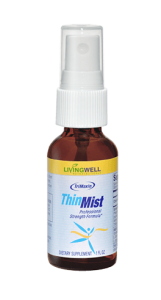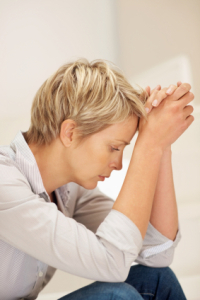 Cortisol, a stress hormone, increases your alertness, which is why levels tend to peak between 6 and 8 in the morning, just before you wake up.[i] They begin to gradually decline after that and around 3 p.m. it suddenly hits you – the afternoon slump.
Cortisol, a stress hormone, increases your alertness, which is why levels tend to peak between 6 and 8 in the morning, just before you wake up.[i] They begin to gradually decline after that and around 3 p.m. it suddenly hits you – the afternoon slump.
You’re tired, you can’t concentrate and you’re desperately in need of a cup of (strong) coffee. But your cortisol levels aren’t the only one to blame. Your circadian rhythm, your body’s internal clock, is also working against your go-go-go lifestyle.
Most people have a biphasic circadian rhythm – that is, they have two periods of sleepiness during a 24-hour period and do best having two periods of sleep.
Most people also have a midday decrease in alertness that occurs between 2-4 p.m.[ii] Even your body’s core temperature dips during this time, which signals your brain to release sleep-inducing melatonin (this also happens at night, but on a larger scale).[iii] So your body is programed to feel tired and, ideally, sleep in the afternoon (at least for a little while), but most of us (in the United States, at least) do not.
At the same time, you’ve probably just eaten lunch and maybe it wasn’t exactly healthy. You might be falling into a food coma or, alternatively, crashing after the effects of your candy bar wore off. Clearly, the odds are stacked against you … but it is possible to beat the afternoon slump. Here’s how …
11 Natural Ways to Boost Your Energy During the Afternoon Slump
11. Use Self-Acupressure
When students in an all-day lecture stimulated certain acupressure points, they reported significantly less sleepiness and fatigue.[iv] The acupressure stimulation points included (try tapping or massaging these areas):[v]
- The top of your head
- The top of the back of your neck on both sides
- The back of your hands between your thumb and forefinger
- Just below your knees
- The bottoms of your feet, at the center just below the balls of your feet
10. Take a Nap
Your body wants to sleep … why not listen to it? The key is to keep it short – just 20 minutes is all it takes to feel refreshed. Any longer and you might feel groggy because you’ll be waking from a deeper sleep. According to the National Sleep Foundation:[vi]
“Sleeping for a short time can make you more alert and energetic–this might be critical to your work or school productivity, or to your ability to take care of a child during the day. Most people feel refreshed after a nap that lasts approximately 20 minutes.”
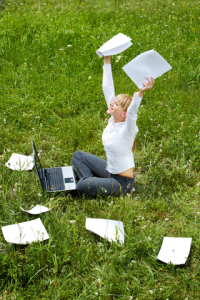 9. Head Outdoors
9. Head Outdoors
Exposure to bright sunlight first thing in the morning helps to reset your circadian clock and may help you avoid the afternoon slump. You can also try a brief (10 minutes or so) sunlight exposure in the afternoon as soon as you feel the slump coming on.[vii] If sunlight exposure isn’t an option, consider using a light box instead.
8. Inhale Peppermint Essential Oil
Research shows inhaling peppermint essential oil reduces feelings of mental exhaustion and burnout. If you’re not a fan of the scent of peppermint, try basil essential oil – it’s been found to work too.[viii]
7. Drink Enough Water
If you’re dehydrated, even mildly, it can cause feelings of fatigue and loss of concentration.[ix]
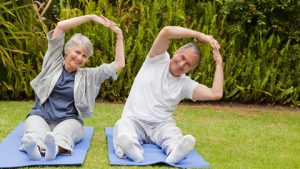 6. Exercise Briefly
6. Exercise Briefly
It takes just one 10-minute (brisk) walk to increase your energy levels for two hours.[x] Even if you don’t have 10 minutes, you can use the No Excuses workout to boost energy (and burn fat) in just four minutes flat.
5. Chew Gum
In a pinch, grab a stick of natural gum and chew away. Research shows it can alleviate feelings of sleepiness in people who stayed up all night[xi] – so it might work for the afternoon slump, too.
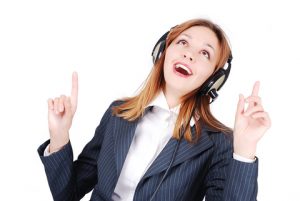 4. Listen to Music – While Singing and Tapping Your Toes
4. Listen to Music – While Singing and Tapping Your Toes
Turning on some upbeat music can give your energy a boost, but research shows that singing and tapping along to the rhythm as well will boost your energy and decrease feelings of tiredness even more.[xii]
3. Meditate
Meditation is often associated with relaxation, but research shows that this simple practice (especially the later, effortless phases) produces “greater wakefulness as a result of neuroplastic changes and more efficient processing.”[xiii]
2. Change Your Posture
Slouching is linked to significantly lower energy levels than other more upbeat postures. If you’re in the height of the afternoon slump, avoid slouching and use these tips to correct your posture instead. Researchers reported in the journal Biofeedback:[xiv]
“By changing posture, subjective energy level can be decreased or increased.”
Low energy levels are often the result of natural declines in your body’s production of human growth hormone (HGH), which occur with age. When supplementing with HGH, 84 percent of participants reported higher energy levels, according to a study at the Palm Springs Life Extension Institute.
ThinMist is a breakthrough formula that contains a uniquely calibrated blend of 7 essential vitamins and amino acids that work together to help boost your body’s ability to produce HGH to boost your energy fast. PLUS, you’ll suppress your appetite and burn your most stubborn fat, too.
[i] The Cortisol Connection, Chapter 6
[ii] Sleep Med. Sep 2007; 8(6): 566-577
[iv] The Journal of Alternative and Complementary Medicine. August 2005, 11(4): 673-679.
[vi] National Sleep Foundation, Should You Nap?
[vii] Center for Environmental Therapeutics April 22, 2014
[viii] J Altern Complement Med. 2013 Jan;19(1):69-71.
[x] Journal of Personality and Social Psychology 1987, Vol. 52, No 1, 119-125
[xi] Sleep Res Online. 1999;2(4):101-5.
[xii] J Music Ther. 2008 Summer;45(2):147-64.

